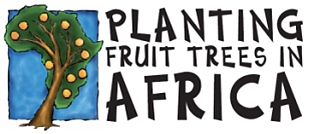We have just returned from Malawi to visit the work being done for our Planting Trees in Africa campaign: for every single full basket we deliver to you, we commit to planting one tree on your behalf.
We have been supporting Ripple Africa (a UK charity) for over 8 years now and, although we have developed a close relationship, we had not yet had the opportunity to see their work first hand. This trip made sense at a time we are celebrating our 10-year anniversary as a company.
Malawi is the 4th poorest country in the world with a GDP/capita of $381.4 (as measured by the World Bank in 2015). This compares to a figure of $43,734.0 for the UK. Malawi has over 17 million people in a country roughly the size of Greece. Of these, over 85% live in rural areas and depend on subsistence farming. The population has grown rapidly from under 4 million people in 1966 and now adds over 400,000 people each year to its population. Families have an average of six children. There is no electricity except in cities and next to the (few) main roads, no running water, the rural houses are built with mud-bricks with either straw or tin roofs, and cooking is largely made using three-stone open fires as their predecessors have been doing for thousands of years.
This extreme population growth, coupled with extremely limited government resources (and widespread political corruption), has placed significant pressures on the natural environment: trees are cut down for cooking, farming and house building. In the past this was not a problem given the abundance of trees and space. Now, however, the story is very different since the high population density means nature has no time to recover - the demands on it simply too large. The lack of trees and bulging population is something apparent from the moment one lands in Malawi. We landed in Lilongwe (the capital) and drove north for some 4 to 5 hours to Nkhata Bay, on the shores of Lake Malawi (the 5th largest lake in the world) where Ripple Africa is based.
What you, as our customer, are contributing towards is a seed planted and grown within a tree nursery (as well as the know-how provided to assist those benefiting from the trees to successfully plant these young trees out when big enough). We visited Fruitful Office trees at the following locations:
1. Schools. The children are the future of Malawi (46% of the population is under 15) and educating them on the merits of conservation is key for the future. We visited several schools where over 3,000 trees had been planted with the objective of providing future firewood (fast growing Senna Siamea trees) or fruit (paw paw, guava, orange and tangerine trees). Trees had grown significantly since planting some 3 to 5 years ago, and a school we visited at Makwalakwata requested an additional 10,000 seedlings to plant out
2. Households. We visited individuals who planted our trees both around their homes and in small farms. With the assistance of Ripple Africa staff, these households operate their own nurseries and then planted out the trees in the rainy season (which runs from December to May)
3. Larger farms and farm cooperatives. Instead of only using their land for the traditional planting of cassava (a root vegetable and a major source of carbohydrates) and maize, these farmers are preparing for the future by planting trees for firewood (for personal use), wood planks (which are sold for home building), and fruit (sold). Looking many years into the future is not something that comes naturally for people whose primary preoccupation is getting through another day. However, it is essential to providing a sustainable livelihood for future generations. We visited five different farms in the Mzuzu area (Malawi's third largest city located about two hours north of where Ripple Africa is based). Each of the farms we visted had planted 20-30,000 seedlings in nursery. On one such visit we helped the farm club (farming cooperative) plant out a new orchard of orange trees. These trees will take some three years before they start producing fruit



